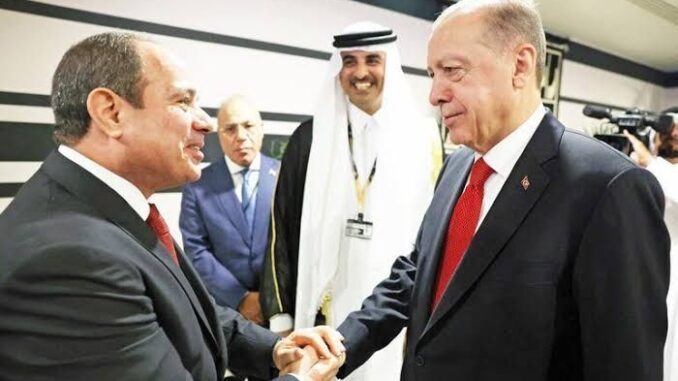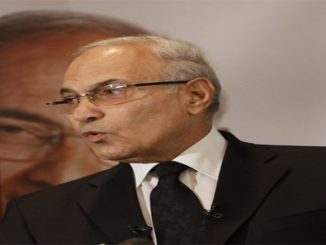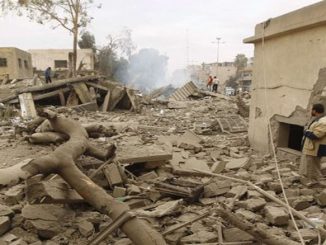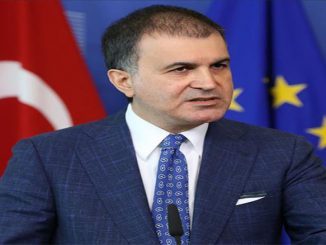
Turkey’s Recep Tayyip Erdogan and Egypt’s Abdel-Fattah Sisi agreed to reappoint ambassadors to revive Turkish-Egyptian ties following a phone call on Monday.
Sisi called Erdogan to congratulate him on his election victory, according to the Turkish Presidential Communications Directorate.
The two leaders also discussed various issues, including the economy, and steps to be taken to deepen Turkey-Egypt ties and address regional problems.
Sisi was among the leaders who called Erdogan after the earthquakes, offering condolences to the quake victims.
Diplomatic relations between Turkey and Egypt have been maintained at the level of charge d’affairs on both sides since Egypt’s 2013 military coup, which overthrew the late President Mohammed Morsi.
Egypt’s history tangled with Ottoman domination in Turkey kept two countries on opposite sides of the Mediterranean Sea closer for centuries. Relations renewed in 1925 when the fledgling Republic of Turkey established diplomatic ties with Cairo 1925, but it took more than two decades before Turkey appointed an ambassador to Egypt.
Relations have mainly been stable except for short periods of suspension in the 1960s, but they reached new heights when Morsi was elected president in 2012. After Morsi was toppled, Turkey maintained contact with Cairo before downgrading diplomatic relations in 2013, while economic ties remained largely unharmed.
In the wake of Turkey’s recent elections, Egypt was one of the countries that quickly reached out to discuss increasing diplomatic ties between Cairo and Ankara.
While in the past Egypt and Turkey had tensions, today Egypt is not only reaching out to Ankara but also hosting a large delegation from the Palestinian Authority and also doing outreach to Iran.
This showcases Cairo’s new role in the region in which it is channeling the larger diplomatic engagement that is taking place across the Middle East. In addition, this is part of Egypt’s return to its historic role as a powerful country in the region and a center of dialogue.
The spokesman for the Egyptian presidency posted online about Egypt and Turkey working to build on their current diplomatic ties.
Egypt’s Prime Minister Mostafa Madbouly also welcomed his Palestinian counterpart Mohamed Shtayyeh at Cairo International Airport on Monday.
The Palestinians brought a large delegation with them and this illustrates Cairo’s potential role in increasing trade and other ties with the Palestinian Authority, which could stabilize Ramallah and help reduce current tensions between the Palestinians and Israel.
This comes amid several attacks and clashes in the West Bank this week and in the wake of a conflict between Israel and Palestinian Islamic Jihad in Gaza.
Iran contributes thoughts on Egyptian diplomacy
On Monday, Iran’s Supreme Leader Ayatollah Ali Khamenei said he wanted to also restore diplomatic ties with Egypt.
This comes as Iran is improving ties with Saudi Arabia in a deal brokered by China. Iraq has also hosted Iran-Saudi Arabia talks. Egypt is a key partner of Saudi Arabia and also works closely with other Gulf states and Iraq.
Egypt was also an early advocate, quietly, of resuming ties with Damascus in some form in the region. Now Syria has returned to the Arab League.
Iran made the comments about Egypt during a meeting with Oman’s Sultan Haitham bin Tariq. Oman is a country that has often been a kind of neutral place for many countries to meet in the region. As such, it can play a key role in working with Egypt to restore ties to Iran.
Meanwhile, the Palestinian delegation in Cairo this week includes various Palestinian Authority ministers and officials from the offices of the interior, economy, religious affairs, health and agriculture.
Egyptian media noted that “the high-ranking Palestinian delegation groups the ministers of foreign affairs and expatriates, interior, national economy, Awqaf and religious affairs, health, agriculture, public works and housing, higher education and scientific research, transport and communications, as well as the head of the Palestinian Energy and Natural Resources Authority,” came to Cairo.
There was an official reception for these ministers and also meetings with Egyptian counterparts. This visit will continue for three days.
Historically, Egypt was a major regional power. This was the case not only during the Nasser era from the 1950s to 1960s but after the Egypt-Israel peace deal when Egypt became a recipient of US defense aid.
Egypt has played a role in the past in Yemen, as well as in ties with Syria and also in North Africa. It has a long arm of interests that stretch up the Nile and to Libya and also has historically included Iran and Turkey.
Cairo’s current outreach to Turkey and the Palestinian Authority, as well as potential new ties with Iran, all come in the context of a regional diplomatic revolution in which countries are pursuing diplomatic ties, rather than conflict.
Egypt has often helped with ceasefires in Gaza and will have an important role to play in the future of issues relating to the Palestinian Authority.



